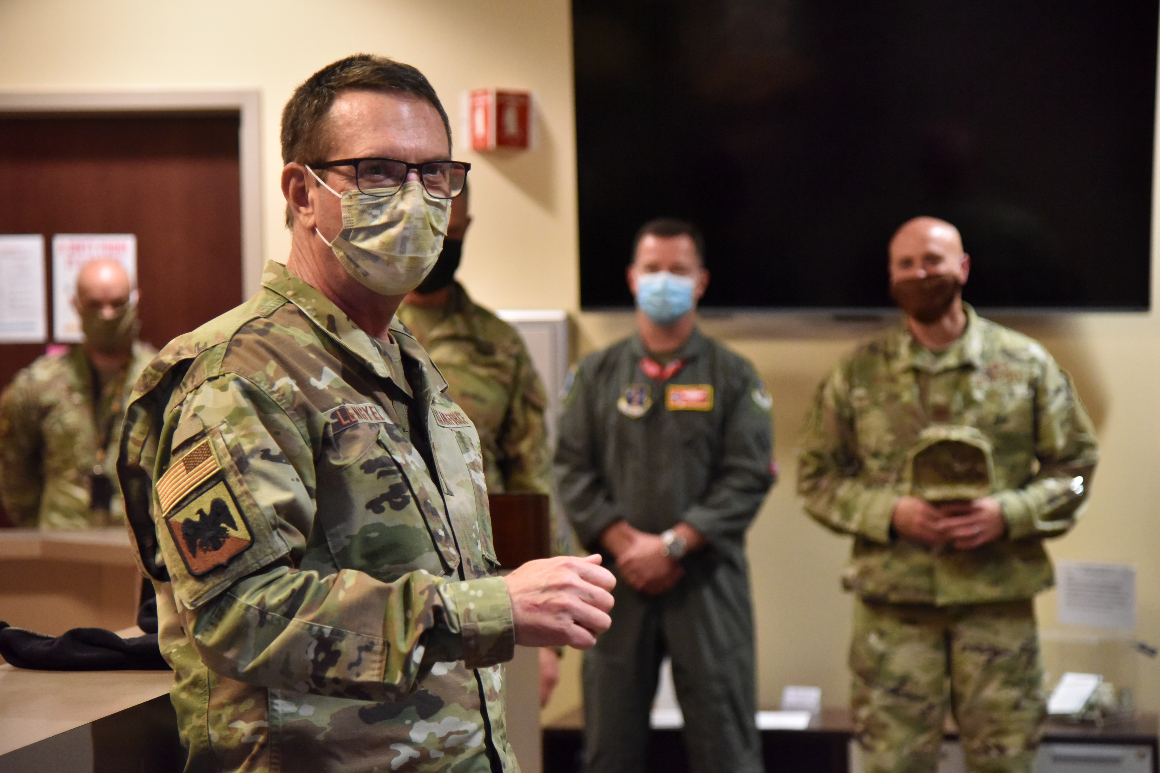
“If they have a valid mission assignment that’s verified by FEMA, my view is we should extend those tours of duty,” Esper said on the „Today Show.“ “I’m not worried about the number of days. What I’m worried about is making sure we win the fight against coronavirus.”
Though an extension is still possible, Lengyel told state National Guard leaders on a Thursday night call that they need to start preparing to transition to a state-funded mission. State leaders say this would mean pulling troops off the front lines of the pandemic response, both because states can’t afford to keep them all mobilized without federal support and because Guard members need to be given two weeks to self-quarantine plus time to use the paid leave they earned on this mission.
“We were told to start planning to pull our troops off of their missions effective June 24,” said Major Gen. Matt Quinn, the adjutant general of Montana and the president of the Adjutants General Association of the United States. “And if the soldiers and airmen were in close contact with someone who had Covid-19, we need to pull them off 14 days early for the quarantine period.”
Officials from two different states also told POLITICO that Lengyel on that call encouraged state leaders to emphasize in their requests for longer federal deployment that the Guards’ work is vital to getting the economy back on track. They interpreted this comment to mean an economic argument would be more convincing to Trump.
States seem to have taken the advice to heart. „Current National Guard response missions are absolutely critical to the state’s efforts to sustain a safe and responsible opening of our economy,“ Washington Gov. Jay Inslee, a Democrat, wrote the president, asking for an extension until July 31.
The push from military officials builds on mounting pressure from Capitol Hill. After POLITICO reported that the administration was planning a “hard stop” to the federal deployment on June 24 — just one day before thousands of Guard members would qualify for early retirement and education benefits — Republican and Democratic members of Congress introduced a wave of bills and oversight actions aimed at extending the deployment and securing Guard members’ federal benefits.
„Having a hard stop, just to shortchange National Guard members, does not help us combat the virus and could lead to gaps in the support network the Administration already took too long build,“ said Rep. Bennie Thompson, (D-Miss.) chair of the House Homeland Security Committee. „We all know the pandemic will continue to affect states for months to come.“
Rep. Max Rose (D-N.Y.), a combat veteran and National Guard captain leading some of the congressional efforts said he hopes Congress doesn’t have to do a legislative fix „since the all the White House has to do is reverse this idiotic, cold decision.“
State officials warn that pulling the troops off the pandemic response next month would disrupt key public health missions that have just begun. In Delaware, for example, 100 National Guard members just this week began supporting the contact tracing operation, which tracks the spread of the virus as the state prepares to reopen. In Wisconsin, Guard members are running an alternate care facility in Milwaukee and leading 25 field testing teams around the state, and lawmakers warned in a letter to the White House on Thursday that the loss of federal funding „could contribute to a possible second wave of infection.”
“Many states have said it is going to be hard for us to transition” to the state-funded mission if the federal deployment adds after just 89 days, Lengyel told POLITICO. In Texas, he said, officials want to add 2,000 members of the Guard in nursing homes to disinfect facilities, an effort that will likely take until after June 24 to complete.
In Montana, National Guard members recently begun running drive-through testing sites on the state’s Native American reservations focused on rooting out asymptomatic infections.
“We’re just starting those missions and just because of some arbitrary date, possibly tied to benefits, we’re going to have to pull the troops off,” Quinn lamented. “I just don’t know where we’re going to find the manpower to continue to do the testing that’s recommended by the White House and CDC of our most vulnerable citizens.”
Source: politico.com
See more here: news365.stream






